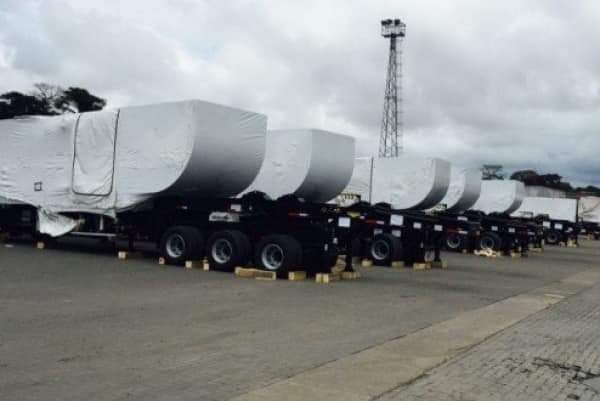
The loan facilities, comprising US$150 million and US$33 million - coming from India and Brazil respectively, form part of government's agricultural transformational strategies to ensure value addition to farmer produce, increase storage span of farm produce and create jobs for citizens to earn foreign exchange.
According to the Minister, "This will help to manage food surpluses produced in the country, especially during high yielding seasons, for storage and export to promote food security".
Dr Akoto made this known during a three-day working visit to the Northern Regions, where he met stakeholders and engaged them to assess the activities and impact of the Planting for Food and Jobs (PFJ) programme in the area.
Dr Akoto said last year, the country had a bumper harvest through PFJ, however, it was only able to export small quantities of the food surpluses, about 130,000 metric tons to neighboring countries, especially Nigeria.
He estimated that the exported food items could be quantified and valued to earn about US$ 100 million on the face of market pricing.
Dr Akoto indicated that the country was likely to generate about twice or three times more, food surpluses this year, and said measures such as the provision of agro-processing machinery including; tractors, rice milling machines, combined harvesters among others, could address increased productivity better.
He said the machines, which would be imported into the country early next year, would be given to farmers and farmer groups on subsidy of about 40 per cent of the cost of a machine purchased to enhance farmers yields and productivity.
He said government was expanding the construction of more buffer stock warehouses to help farmers store their produce and commended the Savannah Zone Agricultural Productivity Improvement Project (SAPIP) for providing resources to supplement government's budget for the PFJ such as the supply of seeds, fertilizers, among others to farmers in the northern region.
Hajia Musah Hawa, Acting Northern Regional Director of Agriculture, said the PFJ led to increasing farmer's food yielding and job creations in the region.
She said farmers were trained on good agricultural practices, supplied insecticides on fall armyworm, facilitated linkages between farmers, input dealers and other value chain actors among others.
Hajia Hawa said from 2017 to 2019 farmers were supported with subidised fertilizers, large quantities of seedlings including; maize, rice, soybeans, sorghum, vegetable seeds among others.
She said in 2019, the PFJ benefitted 133,571 males and 28,169 female farmers and also created employment for 161,494 people in the Northern Region.
Mr Mohammed Adam Nashiru, Chairman of the Northern Farmers Association, said farmers benefited from the PFJ in terms of subsidised fertilizers, seedlings, insecticides, among others and said it brought hope and improvement on their livelihoods in the region.
He called on citizens especially farmers to embrace the PFJ and support the Ministry to enjoy food sufficiency and security.
Mr Salifu Saeed, the Northern Regional Minister acknowledged that the region was peaceful and the impact of the PFJ initiatives in the socio-economic transformation attracted some investors into the area.
The Minister for Food and Agriculture and his entourage visited some of the PFJ initiatives in the Tamale Metropolis, Tolon District and Savelugu Municipality, including; the Tamale Implement Factory, a large scale rice production farmland at Golinga in Tolon among others. Read Full Story



























Facebook
Twitter
Pinterest
Instagram
Google+
YouTube
LinkedIn
RSS